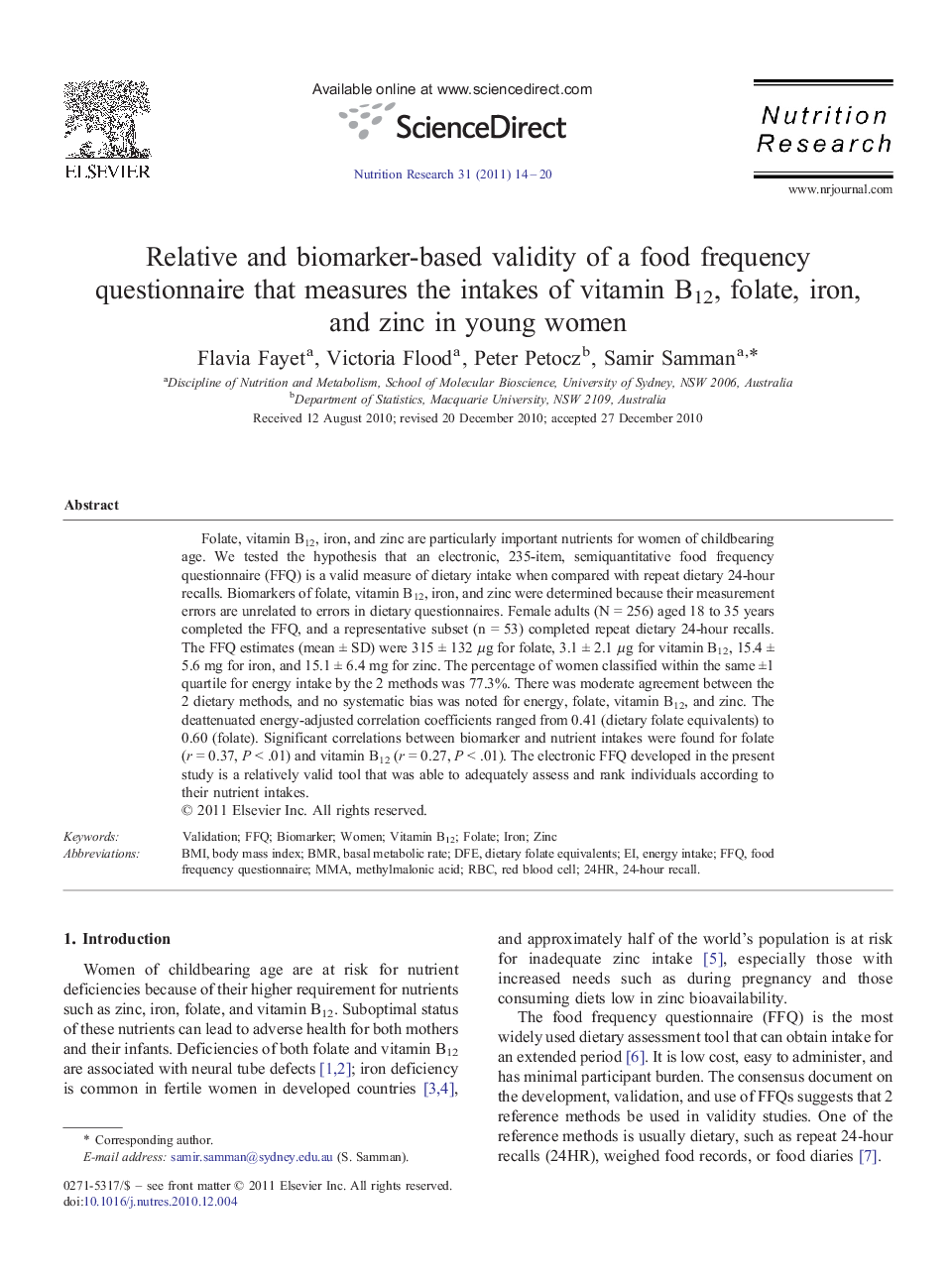| Article ID | Journal | Published Year | Pages | File Type |
|---|---|---|---|---|
| 2809163 | Nutrition Research | 2011 | 7 Pages |
Folate, vitamin B12, iron, and zinc are particularly important nutrients for women of childbearing age. We tested the hypothesis that an electronic, 235-item, semiquantitative food frequency questionnaire (FFQ) is a valid measure of dietary intake when compared with repeat dietary 24-hour recalls. Biomarkers of folate, vitamin B12, iron, and zinc were determined because their measurement errors are unrelated to errors in dietary questionnaires. Female adults (N = 256) aged 18 to 35 years completed the FFQ, and a representative subset (n = 53) completed repeat dietary 24-hour recalls. The FFQ estimates (mean ± SD) were 315 ± 132 μg for folate, 3.1 ± 2.1 μg for vitamin B12, 15.4 ± 5.6 mg for iron, and 15.1 ± 6.4 mg for zinc. The percentage of women classified within the same ±1 quartile for energy intake by the 2 methods was 77.3%. There was moderate agreement between the 2 dietary methods, and no systematic bias was noted for energy, folate, vitamin B12, and zinc. The deattenuated energy-adjusted correlation coefficients ranged from 0.41 (dietary folate equivalents) to 0.60 (folate). Significant correlations between biomarker and nutrient intakes were found for folate (r = 0.37, P < .01) and vitamin B12 (r = 0.27, P < .01). The electronic FFQ developed in the present study is a relatively valid tool that was able to adequately assess and rank individuals according to their nutrient intakes.
